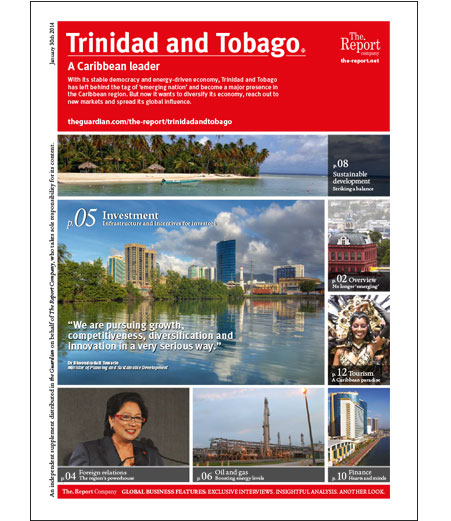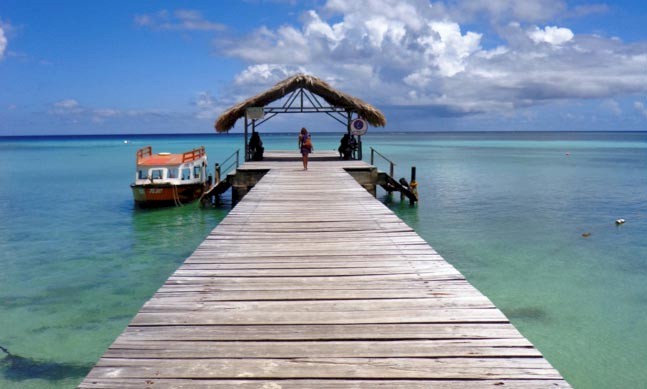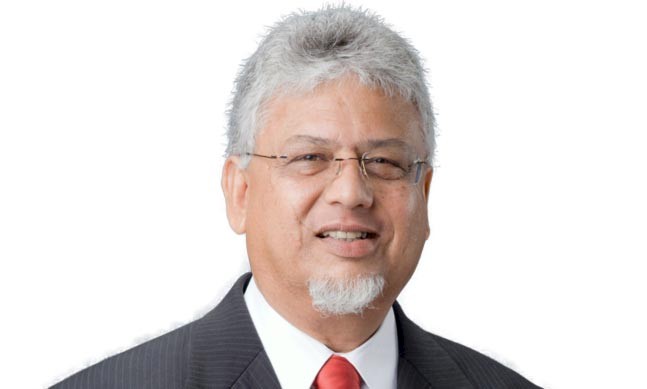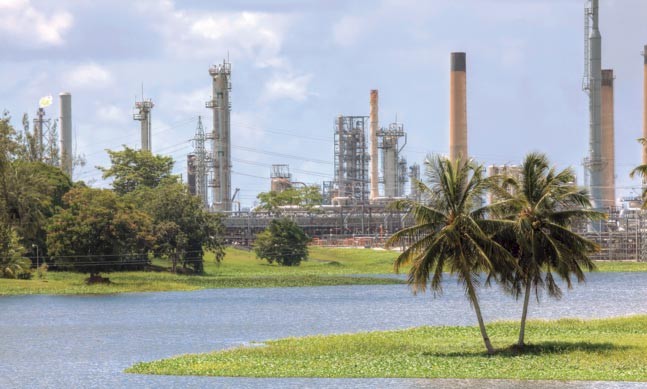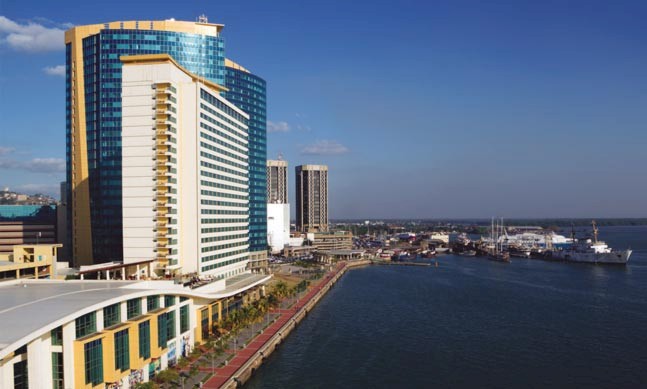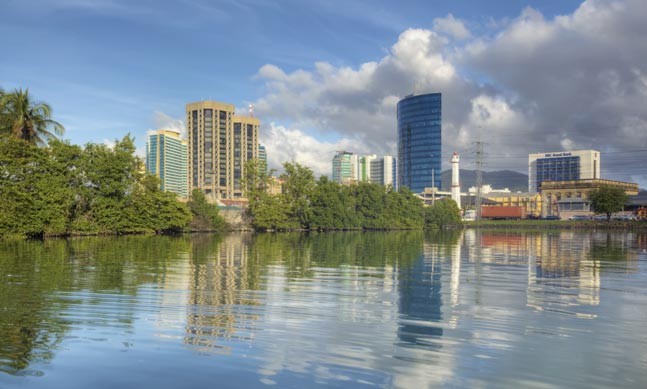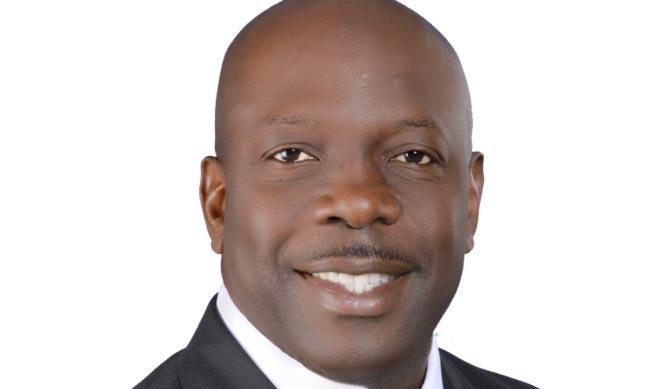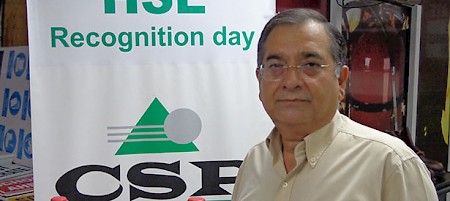
Dipinder Manocha migrated to Trinidad and Tobago from India. In 1983 he seized upon a growing need in Trinidad and Tobago's rapidly developing energy sector for a comprehensive provider safety supplies and established Caribbean Safety Products (CSP), which has since become the region’s leading safety company. He spoke to The Report Company about what differentiates Trinidad and Tobago as a market, and the opportunities he sees for growth.
The Report Company: What are your current activities and key focuses for the business?
Dipinder Manocha: We work in upstream, downstream and we also service the service sector. Because we are also aware that there is evidence that energy may not be here for the long term, we have moved away from 100 percent dependency on the energy companies to agriculture, manufacturing and even the motor car industry. Today, about 42 percent of our business comes from the energy industry.
We have now also moved into the international arena with our own brand names. We are actually the first company to come up with a hard hat which will not fall off your head even without a chin strap. There are certain unique things that we have brought to the table which have come about because we have worked in all the different sectors and we are aware of the issues which the end consumer faces when using safety gear.
We have developed certain products which are very unique and that has helped us because being a small company our overheads are not that huge so we have been able to put our products into the market at very competitive rates with all the necessary certifications and approvals. At one time we were exporting to the United States but we lost that market during the crisis, so now the game plan is for us to increase our home presence. In the present strategy there is a plan to actually open outlets in various places. We have successfully opened three outlets in Trinidad which are essentially servicing the retail side of the business. For us, the market is still very wide and open. I am a firm believer that out of adversity comes opportunity so we don’t look at the negatives of a situation. We adapt to changes very quickly.
TRC: Do you experience much competition in the safety sector?
DM: It’s a very small market. Because we hold a leadership position in the safety business we have to be innovative all the. While that puts pressure on us, it’s very exciting, it’s motivating. We got into the security business because there was a specific need in the oil and gas sector. We were asked to provide a service and we were the very first one to come up with the concept of the emergency response team.
The competition is very fierce because the size of the pie is very small and the opportunities are so many. People do follow us so it becomes challenging but it’s very stimulating.
TRC: How difficult is it to find skilled human capital in Trinidad and Tobago?
DM: There is a great challenge in getting the appropriate skilled people and that was one of the reasons we came up with the emergency response team, which cross-cultivates people’s skills. I’m a firm believer that a true leader is one who creates leaders, not someone who creates followers, so the approach we take is to give the challenge to all of our managers to create their own replacement. This counteracts the situation of shortage of skilled labour. The company does a lot of training and we pay for the schooling for most of our staff if they choose to take a formal education.
TRC: What is your assessment of the evolution of health and safety policies in the energy sector in the energy sector in Trinidad and Tobago?
DM: In my opinion it is the multinationals who made safety of paramount importance. Today, if you have to go into an oil field you have to undergo certain training beforehand. With the accidents that have taken place in the North Sea and the Gulf of Mexico, it drives the point home. We are fortunate in that we have never had a disaster. Safety has become a way of life in Trinidad.
“Because we hold a leadership position in the safety business we have to be innovative all the time.”Tweet This
TRC: What is the international strategy of the company?
DM: The Caribbean is our home market. There are a lot of free trade agreements between the islands and that makes it easier, as well as the similar culture and weather conditions. We have not done any business in Cuba because they still have a lot of red tape which has to be processed, but we have been looking at Surinam and Guyana who are the new players in the oil and gas business right now.
We also sell into Venezuela, which came about because of its proximity.
We study the markets and look at the potential and what the competition is because we still have to deal with international players in this game who have a lot more money to spend on advertising and PR. So we basically look at niche markets. We believe that if we can satisfy the end customer, they will ask for the product by name so our emphasis is that we must have a quality product, a quality service and a very competitive price. We have seen that happening in the areas where we are where people actually request products by our brand names now.
TRC: How different is Trinidad from other markets?
DM: Trinidad is the most industrialised island in the Caribbean and there is no country in the world where you will not find a Trinidadian. Because they are exposed to all conditions and markets, they will demand more from their suppliers. We are not a first world country but the standards and the way we operate we are very much like a first world country. The difference between us and the rest of the islands is that here the consumer is very challenging at times whereas the islands are not industrialised so they are only looking for basic safety.
TRC: To what extent can Trinidad export its knowhow to developing markets?
DM: Trinidad is becoming a hub for energy, just like Houston. Developing countries feel more comfortable with doing business in Trinidad than with Houston because it’s easier to travel here. Culturally and weather wise we are very similar to many developing nations.
Trinidad has been bringing in students from Nigeria and Ghana to become operators in the oil and gas business, so Trinidad is now exporting intangible services but the effect of this is very positive because if you have 30 students who come to Trinidad, whether they stay in a boarding house or share a rental it is an extended market which was not there previously. Then those 30 people will demand ancillary services, so you actually are exporting a service which is actually bringing in some hard currency.
The opportunities are there – companies like Halliburton and Schlumberger have set up a base here because the business climate is very easy going; you can start your operations literally within a matter of days, people are very friendly and the pool of services is available.
TRC: How do you position yourself as a premier safety company in the Caribbean?
DM: The word premier to me doesn’t mean the best; it means the best value for the money which the consumer is spending. This approach has paid off for us. We have signed contracts with some multinationals where we are their safety company, and we give them a premier service which nobody else can provide. One call delivers it all.
TRC: How do you think Trinidad and Tobago should be perceived internationally?
DM: In the oil and gas business Trinidad is considered to be a very important player. It is well-respected because we have been in this business over 100 years and have never had a disaster. Trinidad can act as a model to people for how to do safety. While we may be fun-loving easy going people we know when it gets serious and we act appropriately.
TRC: What is your strategic vision for the future of the company?
DM: We have a strategic plan which runs on a five-year rolling basis. The company continues to focus on the enhancement of its employees and their families. Presently, the company has a labour force of over 300 people and we look at it as we are helping 300 families so the focus is always on how we can continue to assist them. If we want to continue to assist them, we must continue to generate healthy profits and healthy revenues. For us to achieve those things we have to become a household name. We must be able to add healthy numbers to the GDP of the country. We must be able to be self-sustained and to take a position of leadership in the industry. We continue to look at how we can be innovative. We must be able to give to the shareholders a fair return on their investment and be proud that we are the best employer in the industry so we can continue to attract good quality human assets.


